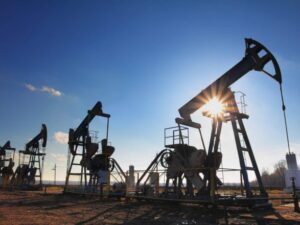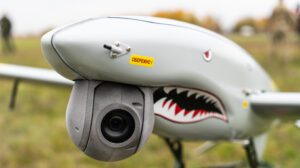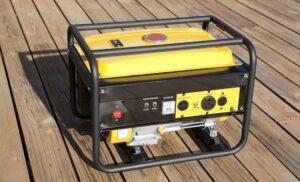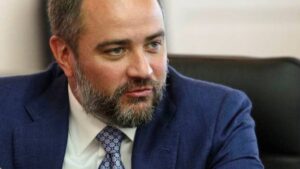
Oil prices are rising on Wednesday morning after having risen the previous day on expectations that China will ease anti-coke restrictions.
The price of January Brent futures, which end trading on Wednesday, on the ICE Futures Exchange in London is $83.97 a barrel by 7:17 a.m. Ksk, up $0.94 (1.13%) from the previous session’s closing price. The more actively traded February futures rose $0.93 (1.1%) to $85.18 a barrel. On Tuesday, February contracts rose $0.36 (0.4%) to $84.25 a barrel.
The price of WTI futures for January at electronic trades on the New York Mercantile Exchange (NYMEX) is $79.09 per barrel by that time, which is $0.89 (1.14%) above the final value of the previous session. The day before contract rose by $0.96 (1.2%) to $78.2 per barrel.
Chinese authorities the day before announced plans to more actively vaccinate the elderly population against coronavirus, reducing the time between vaccinations for those over 80 years to three months.
“The announcement followed unprecedented street protests and was the first signal that Beijing might consider easing draconian measures to control the spread of the coronavirus. The prospect of normalization in the world’s biggest oil importer has driven oil prices higher, the first significant recovery in two weeks,” said ActivTrades senior analyst Ricardo Evangelista.
The market’s attention is also directed towards OPEC+ meeting to be held on December 4. Eurasia Group analysts believe that the alliance may decide to reduce production quotas amid prospects of weakening demand in China.
Meanwhile, the American Petroleum Institute (API) data showed a decline of 7.85 million barrels of oil reserves in the USA last week instead of the 2.5 million barrels reduction which analysts expected.
Official data from the US Department of Energy on inventories will be released on Wednesday at 5:30 p.m. ksec.

The European Commission (EC) on Tuesday proposed a new strategy for the further development of the European drone market.
“The new strategy explains how Europe can carry out large-scale commercial drone operations while offering new opportunities in the sector,” according to an EC communiqué published in Brussels.
The document notes that “thanks to the EU’s comprehensive regulatory framework, drones have been flying safely in European skies for hundreds of thousands of hours, for example to survey infrastructure, monitor oil spills or take soil samples.
The EU has also been successful in developing projects to use drones in medicine, such as transporting medical samples between health services.
Brussels has announced that the introduction in January 2023 of “the world’s only European U-space secure drone traffic control system” will lay the groundwork for expanding the types of operations that use them.
But before promoting these innovative technologies, the European Commission wants to make sure that society supports this type of air transport, the EC document said. Therefore, the new strategy calls on national, regional and local municipalities to ensure that drone services meet the needs of citizens, including addressing issues such as noise, safety and privacy in the use of the machines.
The strategy foresees that by 2030 the following drone services will be an integral part of European life: emergency services, mapping, imaging, inspection and surveillance by civilian drones within the scope of current legislation, and the delivery of small consignments of urgent supplies such as biological samples or medicines.
The strategy looks ahead to innovative aerial mobility services such as air cabs, which provide regular passenger transportation, initially with a pilot on board, but with the ultimate goal of fully automated operations, according to an EC communiqué.

Germany will provide Ukraine with €56 million in financial aid and 350 generators to restore its energy infrastructure, the German government’s press service said after a conversation between Ukrainian President Vladimir Zelensky and German Federal Chancellor Olaf Scholz.
“President Zelensky briefed on the consequences of Russian airstrikes on civilian infrastructure, water and electricity supplies. The Chancellor condemned the ongoing shelling and assured Ukraine of further short-term support. So far, the federal government has provided short-term financial assistance to repair energy infrastructure of about 56 million euros, and Germany is providing more than 350 generators,” the chancellor said in a statement posted on his website Tuesday evening.
In addition, Scholz “confirmed Germany’s continued support for Ukraine, including air defense and long-term reconstruction.”

Wednesday, November 30, no precipitation in Ukraine, only in most northern regions light snow at night. In the western and northern regions, there are icy patches on the roads in places, Ukrhydrometcenter reports.
East wind, 7-12 m/s, gusts of 15-20 m/s in places in the south-east and east of the country.
The temperature at night is 0-5° below zero, in the Carpathian region and in the east of the country 6-11° below zero. During the day from 2° frost to 3° warm, in the southern part during the day from 4° warm to 1° frost, in the Crimea during the day 5-10° warm.
For Kyiv, light snow at night, no precipitation in the daytime. The roads are icy in places. East wind, 7-12 m/s. Night temperature 2-4°C, daytime 0-2°C.
According to the Central Geophysical Observatory. Boris Sreznevsky, the highest temperature during the day on November 30 in Kyiv was recorded in 2012 and amounted to 14 °, the lowest at night – 16.3 ° below zero in 1931.
Thursday, December 1, no precipitation in Ukraine. Fog in some places in the Carpathians at night and in the morning. In the western and northern regions, there are icy patches on the roads in places.
East wind, 5-10 m/s, gusts of 15-20 m/s in places in the east of the country.
The temperature at night and in the daytime is 1-6 degrees of frost, at night in most of the eastern, northern and Rivne regions 4-9 degrees of frost. In Transcarpathia and the south of the country at night and in the daytime from 2° frost to 3° warm. In Crimea, 1-6° heat at night, 4-9° during the day.
In Kyiv, no precipitation, icy roads in places. East wind, 5-10 m/s. The temperature at night and in the daytime is 2-4 degrees of frost, at night on December 1, 6-8 degrees of frost.

The Pechersk district court of Kiev decided on a measure of restraint in the form of detention with an alternative to bail of 9 million 880 thousand UAH to the president of the Ukrainian Football Association (UFA) Andrey Pavelko, bail has already been paid for him, reports the newspaper “Ukrainian Truth”.
“Today there was a meeting of the Pechersky court. Unfortunately, the court did not listen to our arguments and decided to arrest with the possibility of bail. Bail has already been paid. It was paid by the UAF. Now the legal procedures are being finalized to confirm the payment. And we hope that Pavelko will soon appear in the UAF office and will continue to perform his duties,” the newspaper quotes UAF lawyer Denis Bugai as saying.
According to him, the term of arrest is two months. Bail is 9 mln 880 thousand UAH.
According to Ukrayinska Pravda, Pavelko is being held at the Main Investigative Police Department. The UAF expects that “in a few hours” the bail issue will be resolved and he will be released.
“The investigation states that there is a seizure (Pavelko – IF) of UAF funds. This is not true. The funds in question are payments for services provided to the UAF by the famous soccer referee Pierluigi Collina. They had all this evidence, but this evidence was not submitted to the court, but hidden”, – said Bugai.
According to the newspaper, the criminal proceedings were investigated for over three years by the National Anti-Corruption Bureau (NABU), then it was transferred to the police. It is about possible corruption of the FFU in the construction of soccer fields, which the NABU investigated in 2018.
According to the UAF lawyer, Pavelko and UAF general secretary Yuriy Zapisotskiy have been notified of suspicion under the article on embezzlement of funds as part of the investigation.

Alfa-Bank (Ukraine) (Kiev) will change its legal name to Sense Bank JSC starting from December 1 due to abandonment of Alfa brand by the financial institution’s board because of the start of full-scale invasion of Ukraine by Russia, the bank’s press service said.
As noted, customers do not need to re-sign documents, renew contracts, order new certificates of contract status from Alfa Bank and change cards with the logo “Alfa”. All of the above will continue to be valid.
In addition, the details of the contract will remain unchanged.
As noted earlier in an interview with Interfax-Ukraine, former Bulgarian Finance Minister Simeon Dyankov, who in mid-April by agreement with the National Bank was given the right to vote on the majority stake in Alfa-Bank (Ukraine), the board of financial institutions has decided to abandon the brand “Alfa” and continue to work under a new brand. A meeting of shareholders approved the renaming on August 12.
“When the board was deciding on the new brand, the decision became obvious. For the last two years our priority is the development of digital bank Sense SuperApp”, – explained the choice of the new brand the head of the bank Alla Komisarenko.
The National Bank of Ukraine (NBU) approved the renaming on September 24, 2022.
The net loss of the bank in January-July 2022 amounted to UAH 3.52 billion. The financial results were affected by the UAH 8.357 bln allocations to reserves.
According to the NBU, by July 1, 2022, Alfa-Bank (Ukraine) took 7th place by its total assets (112.67 bln hryvnia) among 68 operating banks in the country.